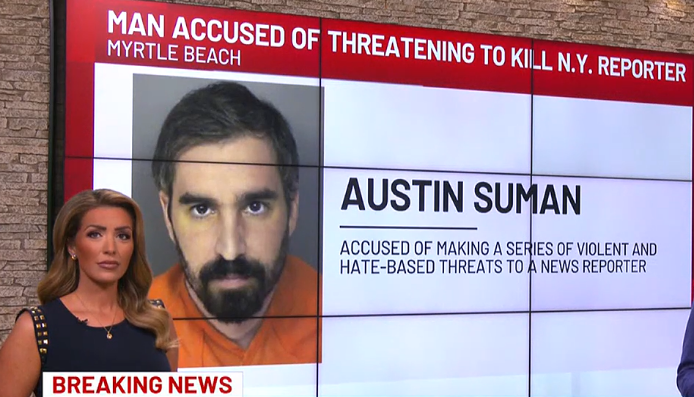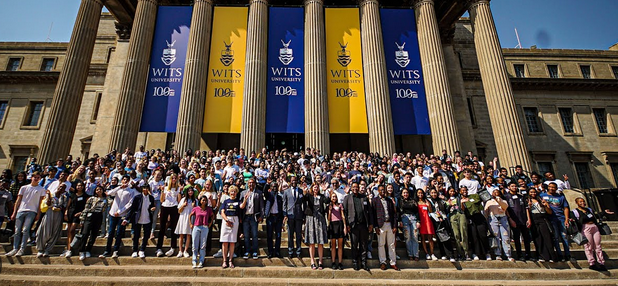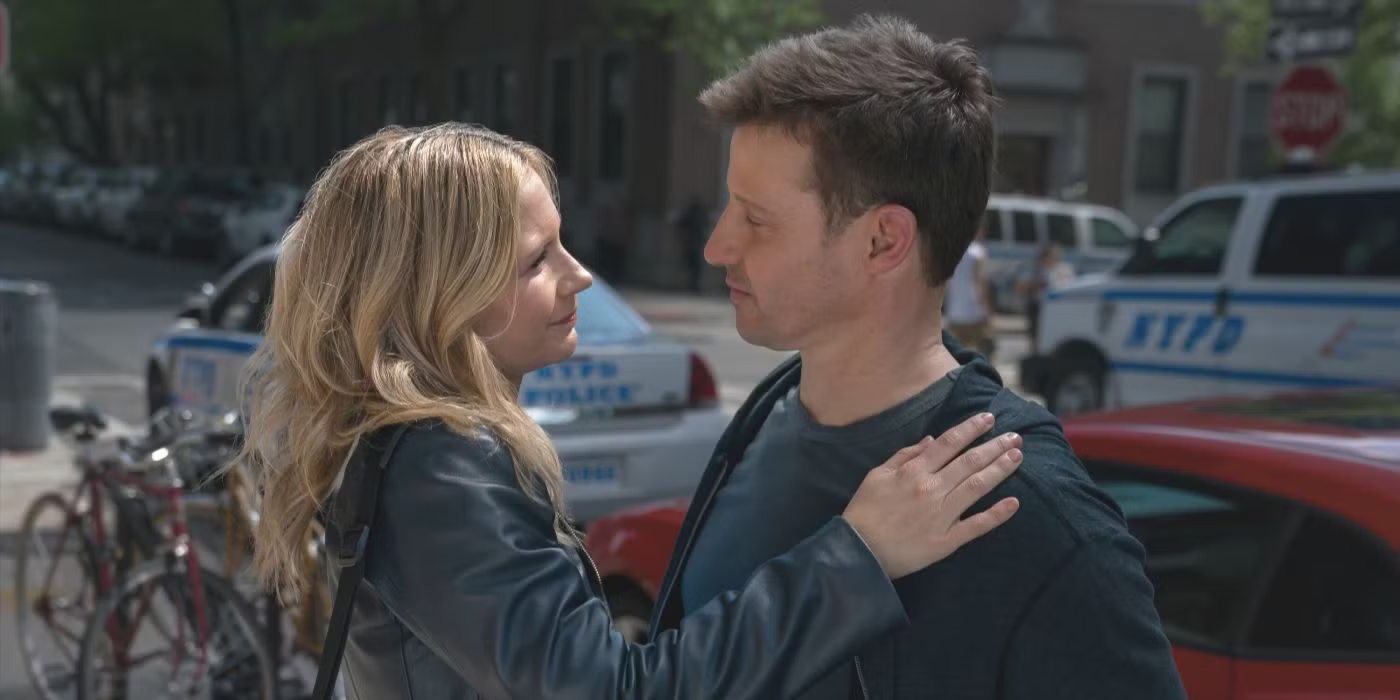Photos: YouTube
(New York, NY) – New York City’s community foundation announced $7 million in grants to 39 nonprofits working to make life better for all New Yorkers.
“The city is still recovering from the pandemic and now faces rising prices, significant job losses, and an ongoing lack of affordable housing,” said Shawn Morehead, The Trust’s vice president for grants. “In this challenging moment, we have targeted many of our grants to help New Yorkers facing the greatest needs.”
The Trust’s latest group of grantees works in a range of areas, including fighting hunger, supporting arts and culture, protecting the environment, and reforming the justice system. Grants serve people citywide, except where noted.
Longer descriptions of the grants are available upon request.

Libraries in the Age of the Internet
The high cost of internet services creates a barrier to full participation in academic, economic, and other important aspects of life for low-income residents. Nearly a third of the city’s households do not have a broadband subscription and 15 percent have neither a mobile connection nor wi-fi. The Trust made grants to bring down financial barriers and increase access.
Brooklyn Public Library: $375,000 to help Brooklyn residents access a new federal internet subsidy, which provides low-income families with long-term financial assistance for broadband services. The Library will create a marketing campaign to promote awareness about the subsidy and run a hotline and a series of workshops to help people enroll.
New York Public Library: $200,000 to help New Yorkers use MyChart, a telehealth system, by launching one of the country’s first library-led telehealth training and education programs in partnership with Montefiore Medical Center and the Mt. Sinai Health System.
Queens Library Foundation: $300,000 to expand Queens residents’ access to the internet. The Foundation will install external wi-fi devices at 40 library branches, lend over 2,000 hotspots in areas with low-broadband service and high need—including branches near public housing developments—and provide multilingual training on how to use the systems.
Responding to Climate Change, Protecting the Environment
Electric School Buses 4 All Coalition: $250,000 to support the electrification of school buses in New York State. The coalition will help ensure that lower-income communities of color and children with disabilities who depend on school buses benefit from city and state electrification efforts.
Green Recovery Alliance: $200,000 to help state and local governments find innovative ways to use new federal infrastructure funding to support a more environmentally friendly pandemic recovery that creates high-quality jobs, reduces emissions, and increases climate resilience.
New York University: $175,000 for the Urban Future Lab’s sixth and seventh annual prize competitions to identify promising clean technologies that can help New York City and other municipalities meet climate goals and demonstrate leadership in urban sustainability.
NY Renews Education Fund: $100,000 to support the implementation of the Climate Leadership and Community Protection Act, which NY Renews helped develop and pass in 2019. The Act requires New York to use 100 percent clean energy by 2050, reforms how state agencies approach the climate crisis, and mandates that 35 percent of climate-related investments benefit low-income communities. The nonprofit will help guide public investment and regulatory changes.
Ocean Foundation: $175,000 to strengthen the collective power of U.S. island communities through the Climate Strong Islands Network, which coordinates advocacy efforts for sustainable development among more than 150 island-focused organizations. The Network will monitor state and federal legislation and make policy recommendations in areas such as clean energy adoption, water resources management, food security, and disaster preparedness.
Riverkeeper: $100,000 to better manage wastewater runoff and protect New York City from climate change by promoting the use of green infrastructures such as constructed wetlands, enhanced parks and tree pits, and green roofs.
Sky Island Alliance: $100,000 to support the movement of wildlife across the U.S.-Mexico border. The Alliance will monitor several specific species, restore vital habitats and water sources, and raise public awareness about the ecological damage caused by new structural barriers.
Wildlife Conservation Society: $300,000 for a multiyear project to create, expand, and improve wildlife corridors in India, Nicaragua, and South Sudan as part of a global effort to conserve the planet’s land and aquatic areas.
Innovative Supportive Housing for Older New Yorkers
New York City lacks affordable housing for those over 65. One recently opened building in lower Manhattan received 65,000 applications for its 99 units. Home sharing within privately owned, multi-family houses is one model that The Trust is funding to expand supportive housing options.
India Home: $150,000 to carry out a test of a community-based shared housing program, which will meet the needs of South Asian older adults, who are more likely to live in poverty and face housing insecurity than other immigrants. The homes will provide residents with social services, healthcare, public benefits assistance, and cultural programming.
LiveOn NY: $350,000 to advocate for improvements to the city’s services for older adults. The group will convene leaders, providers, and city officials to encourage the adoption of a comprehensive policy agenda for older New Yorkers, including more housing, food services, and transportation options.
Stonewall Community Development Corporation: $140,000 to test a supportive shared housing model in the north Bronx for LGBTQ older veterans, who frequently face discrimination in housing programs and often find themselves priced out of their neighborhoods.
Improving Health and Addiction Services
The National Institute on Drug Abuse has reported a steady increase in drug overdose deaths in the United States since the pandemic began. Last year, overdose deaths in the U.S. exceeded 100,000 for the first time, and New York mirrors the national trend with 2,800 deaths last year. The Trust is supporting nonprofits providing critical health services to New Yorkers struggling with addiction.
EngageWell IPA: $150,000 to expand virtual care for people with HIV/AIDS or addictions, those experiencing homelessness, and other high-need individuals. It will develop a patient monitoring platform that will provide medication reminders, referrals for clinical and social services, and a digital food pantry ordering system for those with dietary restrictions.
Greenwich House: $150,000 to train credentialed recovery peers as home health aides, which will equip them to better address chronic health problems for people seeking treatment for a substance use disorder.
Strengthening Nonprofits and the Field of Social Work
The Trust works to improve the effectiveness of nonprofits that meet the needs of New Yorkers. It also funds programs that improve the field of social work nationwide.
Advocacy Institute: $100,000 to improve technology for nonprofits engaged in legislative advocacy. The Institute will upgrade and roll out tools, including a one-of-a-kind searchable database of state elected officials and their staff, software that tracks lobbying activities, and analytics tools that are more user-friendly.
Hunter College of CUNY: $1,000,000 for the Silberman School of Social Work to create an online masters program so that more people can become social workers—a critical part of healthcare that has seen a rise in departures through the pandemic.
Nonprofit New York: $150,000 to help nonprofit organizations develop post-pandemic management and personnel practices through lectures, discussions, and group exercises guided by facilitators. Topics include remote work policies, health and safety protocols, and governmental compliance.
Social Science Research Council: $100,000 to help local nonprofits with limited research capacity improve their ability to interpret census and other data, and use it to set organizational goals, improve services, track outcomes, and communicate results.
West Side Campaign Against Hunger: $75,000 to increase the collective purchasing power and efficiency of emergency food providers to purchase healthier foods as opposed to cheaper foods that are high in sugar and fat.
Jobs and Workforce Development
Bridges from School to Work: $100,000 to expand an employment program for young adults with disabilities transitioning out of high school. Bridges will help young people find good paying jobs; help them through the application, interview, and onboarding processes; and provide on-site coaching for the first year.
Chashama: $150,000 to expand its Storefront Startups program, which matches clothing designers, artisans, and other creative entrepreneurs with affordable studios and retail spaces in underutilized commercial locations. The program will focus on supporting women and people of color.
Grace Institute of New York: $80,000 to expand a workforce training program for low-income women—nearly half of whom are single mothers on public assistance. The Institute will provide more virtual and in-person course offerings in healthcare administration, clerical work, and essential technical skills. It will assist participants in job searches, interviewing, and networking.
Local Initiatives Support Corporation: $175,000 to support a citywide network of organizations helping small businesses in low-income neighborhoods. Working together, the Corporation and the network will help businesses with sessions on digital marketing and growth strategies, as well as facilitate access to financial assistance.
Aiding Education & Youth
Students are still coping with the education, social, and behavioral effects of remote learning. The Trust is making grants to nonprofits addressing these issues as well as creating in-person opportunities for job-readiness and language development.
Beam Center: $75,000 to expand a science and technology leadership program that introduces high school students to creative careers. The Center will provide young people with paid apprenticeships with artists and craftspeople working on public art projects, teaching them to use 3D printers, editing equipment, and welding tools.
Language Conservancy: $44,000 to teach young Native American New Yorkers to speak and write in Lakota, an endangered indigenous language, and help them become leaders in the language preservation movement.
New Teacher Center: $100,000 to enroll public school leaders from Brooklyn’s District 17—which has high rates of poverty and low rates of academic achievement—in a professional development program aimed at improving principal retention and teacher effectiveness.
New York University: $90,000 to train teachers in New York City’s early childhood programs to use oral storytelling techniques—that include modified popular folk tales and African-American and Latin-American legends—to promote language development in toddlers.
NPower: $100,000 to expand a free technology training program that prepares young people with high school diplomas, or the equivalent, for careers in information technology. The program will particularly recruit Black and Latinx young people, who often lack access to training to prepare for jobs in the growing tech sector.
NYC Outward Bound Schools: $125,000 to foster stronger connections between students and their teachers at 44 public high schools in response to students feeling disengaged from their school communities. Almost two-thirds of students report not having a single trusted adult at school, which is critical to academic success. The program will train advisory teachers to meet students regularly and help them build social and emotional skills.
Supporting the Arts
Dance/NYC: $314,000 for the Dance Workforce Resilience Initiative, which will research and advocate for improved labor conditions for dance workers, including older adult performers. The initiative will conduct the first-ever census of the city’s dance workforce to inform fair labor practices. In addition, it will administer a grant program to supplement dance artists’ wages.
Reel Works: $100,000 for this Emmy-winning media program for young filmmakers to run MediaMKRS, which prepares high school and college students for careers in the film industry. The group will enroll over 150 participants in skills training and provide internships at media companies. Additionally, it will offer at least 1,600 young people credentials that provide an entry point for many jobs in the industry that don’t require a college degree.
University of Pennsylvania’s Social Impact of the Arts Project: $180,600 to inventory New York City’s neighborhood-based cultural assets in the wake of the pandemic and examine the relationship between arts engagement, community change, and social wellbeing. It will conduct research, create reports and an interactive website, and hold events to encourage public engagement in arts advocacy and evidence-based policymaking.
Helping Immigrants
Immigrant Advocates Response Collaborative: $130,000 to ensure that new federal regulation reflects the needs of the city’s immigrant communities. As the Biden administration continues to overhaul restrictive immigration policies with ones that promote lawful migration, the Collaborative will review the proposed changes and make recommendations.
Pro Bono Net: $100,000 to train community organizers, worker advocates, and legal service providers to use ¡Reclamo!, a new digital application developed to help immigrant workers—who are at a greater risk of exploitation and retaliation by employers—combat wage theft by expediting the claims process.
Justice
Correctional Association of New York: $200,000 to increase transparency and accountability in state correctional facilities, including the prison healthcare system. The Association will work with legislators to increase access to prisons to monitor conditions and improve healthcare, nutrition, and safety. It will seek to reform prison health systems by putting the State Department of Health in an official oversight role.
Justice Innovation: $150,000 to support the Center for Court Innovation’s transition from a member of the Fund for the City of New York’s Partner Project Program to an independent nonprofit organization—Justice Innovation. The new organization will build out necessary departments and develop its own robust governance structures for creating a more effective and humane justice system in the city.
Women’s Community Justice Association: $150,000 for an advocacy campaign to expedite the planned closure of the women’s jail on Rikers Island, which has double the number of reports of sexual violence in comparison to other correctional facilities, and to transition the women to a stand-alone facility that provides gender-responsive services.

The New York Community Trust is a public charity and New York City’s largest community foundation. It connects generous people and institutions with high-impact nonprofits making the city and its suburbs a better place for all. It builds stronger communities, influences public policy, fosters innovation, improves lives, and protects our environment.







